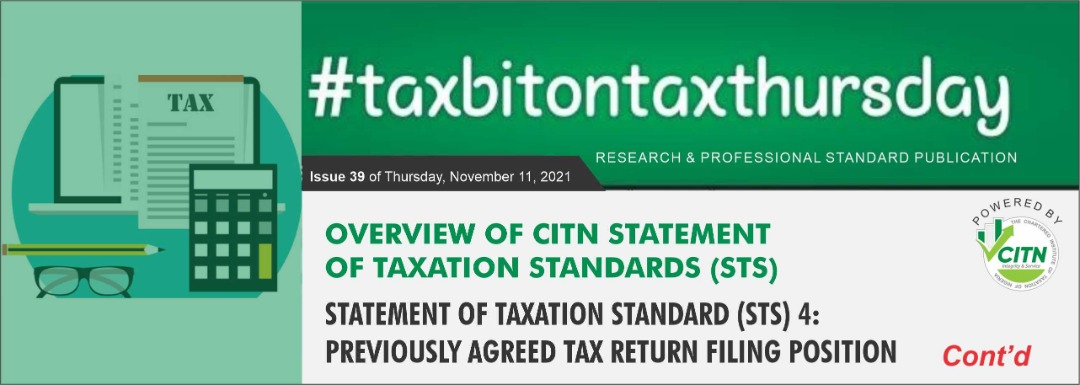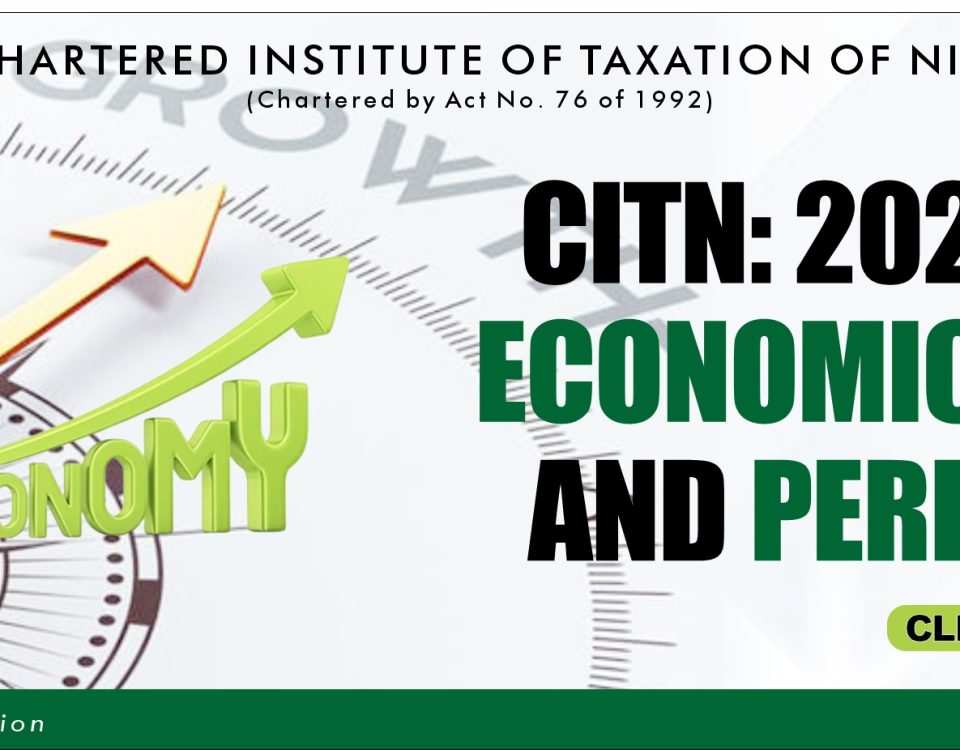- Have any questions?
- 09080888815
- 092918349
- citn@citn.org
Overview of CITN Statement of Taxation Standards (STSs)

EVOLUTION OF THE NIGERIA DIGITAL CURRENCY: THE e-NAIRA (Part 1)
October 9, 2021
Overview of CITN Statement of Taxation Standards (STSs)- part 2
October 28, 2021Introduction
Tax practice as a term encompasses the policies, procedures and practices that are routinely and consistently employed by members of the taxation profession in the preparation and filing of tax returns, as well as the executive and other ancillary functions in respect of any tax position and reports for a specific tax period. To ensure compliance with tax legislations, tax professionals must follow specific rules and conventions in carrying out their functions.
The Chartered Institute of Taxation of Nigeria (CITN) was established by Act No. 76 of 1992 now CAP C10, LFN 2004 as amended. Part of its aims and objectives are to raise, maintain and regulate the standard of taxation practice amongst its members (section 1 of the Act). In pursuance of this mandate, the Institute has published STS 1-9 to set forth the standards to be followed in the course of the practice of taxation in Nigeria by members of the Institute.
The CITN Statements of Taxation Standards (STSs) apply to all members of the Institute in all aspects of tax practice. Together with the Institute’s Professional Rules and Practice Guideline (PRPG), they make up the framework of CITN’s ethical guidance for tax practitioners.
The extant Standards issued by the Institute are as follows:
- STS 1 – Know your client
- STS 2 – Tax Returns Position
- STS 3 – Procedural Aspect of Filing Returns
- STS 4 – Previously agreed Tax Return filing position.
- STS 5 – Form and Content of Tax advice/opinion.
- STS 6 – Knowledge of Error: Administrative Proceedings
- STS 7 – Knowledge of Error: Returns Preparation
- STS 8 – Use of Estimate
- STS 9 – Tax Planning.
STS One: KNOW YOUR CLIENT
The first standard explains the expectation on a member that holds him/herself out for tax practice. Upon acceptance to act for a client, a member of the Institute is expected to exercise reasonable skill and care in the absence of which he may be liable for negligence. This duty of care is deemed to exist in contract whether there is letter of engagement or not. A tax professional, is however, advised to ensure that his client’s instructions are reduced into a letter of engagement clearly stating the extent of his responsibilities.
In accepting to act in a professional capacity on behalf of a taxpayer, a member should confirm in writing the identity of the taxpayer who he will be taking instructions from and carry out identity checks on the taxpayer. In addition, a tax professional is advised to request for reference from a previous tax consultant and resolve any potential issue that bothers on conflict of interest.
In the same vein, a member is in a better position if he understands the scope of the work he has been engaged to do. He can do this by understanding the client’s financials, business affairs and attitude to risk.
Where he is acting for intermediaries including other firms of tax consultants, a member should clarify whether the appointment is with the intermediary and without any direct contact with the taxpayer; or by introduction directly to the taxpayer by the intermediary. If the member does not have direct contact with the taxpayer, then the member should confirm the scope of what is required and whether and how the advice is to be disclosed to the client of the intermediary. Such arrangements and terms of business should be confirmed in writing.
Please watch out for highlights on STS 2 and 3 in the next edition.
Members and stakeholders are invited to visit https://app.citn.org/home/tpgs to download the CITN Statement of Taxation Standards 1-8.



